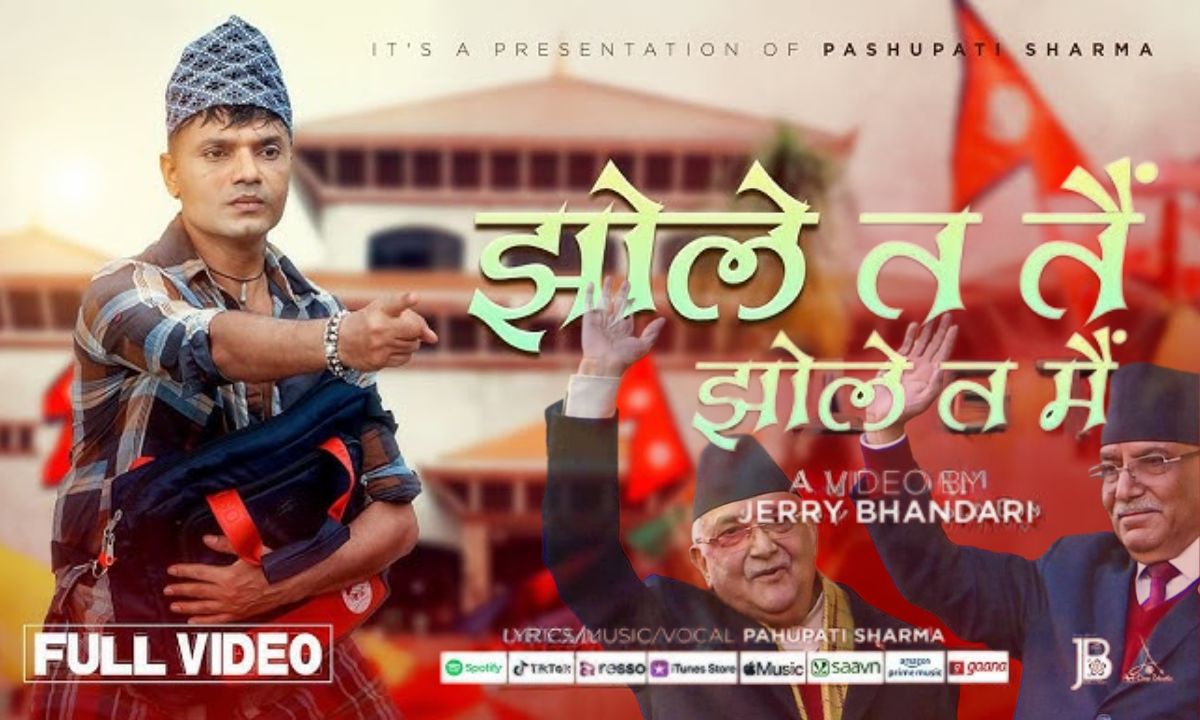Nepali folk singer Pashupati Sharma has once again grabbed attention with his bold and witty satire targeting political hypocrisy through his new song, “Jhole Ta Tai, Jhole Ta Mai.”
A Voice That Reflects the People’s Frustration
Known for singing songs rooted in everyday Nepali life, Sharma doesn’t just entertain—he challenges the system. His music often includes political satire, making him a standout figure in the Nepali music industry.
Back Then: “Lutna Sake Lut” Sparked Controversy
His earlier song, “Lutna Sake Lut Kancha,” released in 2075 BS, became so controversial that it was taken down from YouTube after backlash from political activists. It had caught the attention of then-Prime Minister KP Sharma Oli and criticized corruption directly.
New Song Targets All Top Leaders Equally
In his latest release, Sharma continues this trend by pointing fingers at the nation’s major political leaders—KP Oli, Sher Bahadur Deuba, Pushpa Kamal Dahal (Prachanda), and Rabi Lamichhane. No one is spared.
Lyrics like:
“KP ni sahi, Deuba ni sahi, Prachanda sahi, Rabi ni sahi, kharab ta tai, kharab ta mai”
reflect his sarcastic take on how the public blindly supports flawed leaders.
Symbolism in “Jhole” and the Mock Election Rally
The term “Jhole” is used in reference to party loyalists who blindly follow their leaders. Notably, KP Oli’s party recently ran a campaign using the word “Jhole,” even declaring on social media, “Ma Jhole Ho.”
In the music video, Sharma mocks this by running a fake election campaign, using the symbol of a “bag” (Jhola) as his party sign.
Also Criticizes RSP and Viral Culture
Sharma’s song also takes aim at the Rastriya Swatantra Party (RSP), suggesting that it’s no different from traditional parties. The lyrics put RSP in the same category as Congress, UML, and Maoists.
He doesn’t stop at politics—he mocks viral internet culture, cheap publicity stunts, and YouTubers who profit from exaggerated emotional content.
A Message to the People: Who’s Really to Blame?
The core message of Sharma’s song is clear: when corrupt or controversial figures are constantly labeled as “right,” then the fault lies with us—the people.
His final statement is powerful:
“If the wrong becomes right in your eyes, then maybe we are the real problem.”




